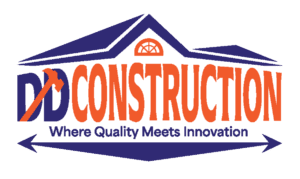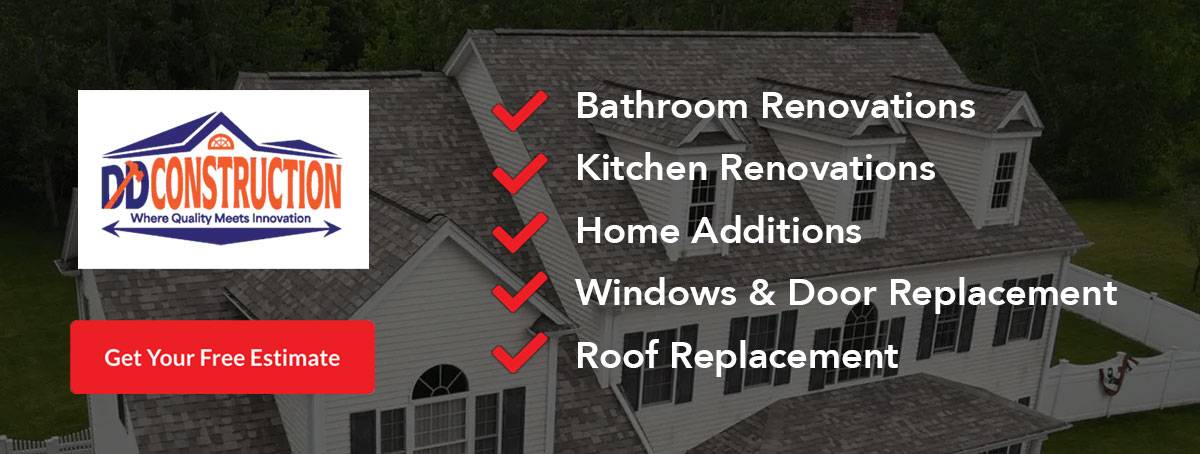What to Expect During a Roof Replacement by a Massachusetts Contractor: Complete Guide for Homeowners
This comprehensive guide is designed to help Massachusetts homeowners understand the entire process of roof replacement from start to finish. Roof replacement is one of the most significant home improvement projects you will undertake, involving careful planning, material selection, permits, and execution by experts, including ddconstructionma. In this article, you will learn about each phase—from the initial inspection and material choice to installation, cleanup, and final inspections—as well as cost estimation, contractor selection, and weather considerations specific to Massachusetts. Homeowners seeking top quality improvements delivered by experienced roofers in Massachusetts, including those using products like GAF Master Elite, will find valuable insights and practical advice here. With a focus on quality workmanship, local building code compliance, and warranty and maintenance issues, this guide provides the knowledge you need to manage your project confidently.
Massachusetts weather, with its heavy snowfalls and hot summers, demands careful planning during roof replacement. Understanding how contractors inspect your roof, choose appropriate materials—whether traditional asphalt shingles, energy-efficient metal roofing, or sustainable alternatives—and handle permits and code compliance can help you plan effectively. Although the process may seem daunting, knowing how the old roof is removed, how cleanup is managed, and how inspections ensure quality can give you peace of mind. In addition, this guide covers budgeting, financing options, and insurance claims that might lower overall costs. By learning what to expect during each stage, you will be better equipped to choose the right contractor and secure a durable roof that meets Massachusetts’ strict climate and code requirements.
In the following sections, we describe the roof replacement process, material options, cost breakdown, contractor selection, local weather factors, maintenance tips, and project timelines. Each segment addresses commonly asked questions in a clear, organized manner to help you navigate the complexities of your home improvement project while upholding quality standards championed by companies like DD Construction.
How Does the Roof Replacement Process Work in Massachusetts?
The roof replacement process in Massachusetts is structured and rigorous to ensure safety, compliance, and quality outcomes. From the initial inspection to the final inspection, each step is carefully planned and executed by professional contractors.
What Happens During the Initial Roof Inspection?
During the initial inspection, a licensed contractor evaluates the condition of your existing roof. The process includes a visual examination of the exterior and an attic inspection for water damage, rotting, or mold. The contractor checks shingles, flashing, and other components for wear due to Massachusetts’ harsh weather. Measurements and detailed documentation (photos and written reports) are produced to estimate material needs, labor costs, and uncover potential structural issues that might delay the project. Advanced tools, such as moisture meters and thermal imaging cameras, are used as needed. Once complete, the contractor will discuss findings and recommend solutions tailored to your home’s architectural style and local environmental challenges.
How Do Contractors Help You Choose the Right Roofing Materials?
Contractors assist homeowners in navigating the many roofing options available. In Massachusetts, material choice is influenced by local weather, building codes, and aesthetics. A qualified contractor will offer a range of options including asphalt shingles, metal roofing, tile, and sustainable alternatives. They provide product samples and brochures from top manufacturers like GAF Master Elite so you can assess quality firsthand.
They objectively compare materials: asphalt shingles are affordable and easy to install but may have a shorter lifespan, whereas metal roofs are durable and perform well under heavy snow loads. The contractor explains warranty periods, maintenance needs, fire ratings, impact resistance, and energy efficiency. They also consider your home’s style, insulation, energy usage, and neighborhood integration, ensuring the final choice meets both practical and aesthetic needs while complying with local codes and climate considerations.
What Permits and Code Compliance Are Required in Massachusetts?
Obtaining the proper permits and ensuring code compliance is mandatory in Massachusetts. A licensed contractor will handle the permit process by submitting detailed plans and specifications to your local building department. These permits verify that the project meets safety, energy efficiency, and zoning regulations, while ensuring the new roof withstands local weather conditions. Contractors also file permits, schedule inspections, and coordinate with local authorities, providing copies of approved permits and compliance documentation. This process minimizes legal risks, delays, and fines while confirming that all work adheres to requirements, including snow load calculations and fire safety standards.
How Is the Old Roof Removed and the New Roof Installed?
Roof removal (tear-off) is the first major phase. In Massachusetts, trained professionals use specialized equipment to remove old roofing materials safely. Contractors protect nearby property and carefully remove shingles, underlayment, and debris down to the deck—often revealing additional issues like rotted wood that must be repaired.
Once the old roof is removed and the deck is prepared, installation begins by laying a waterproof underlayment followed by the new roofing material. Precision during installation is critical; all panels, shingles, or metal pieces are securely fastened, and proper flashing is installed around chimneys, vents, and skylights to ensure a watertight seal. Contractors monitor the work closely, communicate with homeowners about timelines, and address any challenges immediately. Safety protocols, including the use of scaffolding and fall-protection systems, are strictly followed throughout this phase.
What Cleanup and Final Inspections Should You Expect?
After installation, a thorough cleanup is conducted. Contractors remove all leftover materials, debris, and equipment, disposing of broken shingles, old underlayment, and damaged wood or insulation to restore your property safely.
The final inspection process involves both the contractor and local building authorities verifying that the work meets all code and contractual standards. A walk-through is performed to identify any minor adjustments needed, such as sealing flashing or securing gutters and downspouts. A detailed report with photographs and inspector sign-off is then provided to you, ensuring peace of mind and serving as documentation for future maintenance, resale, or insurance purposes.
Which Roofing Materials Are Best for Massachusetts Roof Replacement?
Selecting the right roofing materials in Massachusetts involves balancing durability, cost, aesthetics, and performance in varying weather. Homeowners must weigh the pros and cons of each material to choose the option that best fits their needs.
What Are the Pros and Cons of Asphalt Shingles in Massachusetts?
Asphalt shingles are popular because they are cost-effective, come in many colors, and meet local building codes easily. They perform well in protecting against heavy rains, strong winds, and moderate snow loads and are lightweight, reducing stress on the structure.
However, their lifespan is generally 20 to 30 years, which is shorter than some alternatives like metal or slate. They can be vulnerable to damage from extreme temperature shifts and UV radiation, which may lead to premature aging or cracking. Although initially affordable, long-term maintenance or frequent replacements may add to overall costs. In some cases, additional insulation and ventilation are needed to maintain comfort indoors during both winter and summer.
How Does Metal Roofing Perform in Massachusetts Weather?
Metal roofing is increasingly popular in Massachusetts for its durability, energy efficiency, and modern appearance. Metal roofs are engineered to withstand heavy snow, ice, and high winds. Their reflective properties help reduce heat absorption during the summer, contributing to energy savings. They also typically have a lifespan of 40 to 70 years with minimal maintenance.
Although metal roofs come with a higher upfront cost and can be noisier in heavy rain or hail if insulation is lacking, many homeowners find that the reduced maintenance and long-term durability make them cost-effective over time. Metal roofing systems are often used where longevity, low maintenance, and energy efficiency are priorities, and they can be designed to mimic traditional materials such as slate.
Are Tile Roofs Suitable for Massachusetts Homes?
Tile roofs—whether clay or concrete—offer a distinctive aesthetic and superior durability. They provide excellent resistance to fire and weather when the home’s structure is properly reinforced. Tile roofs have a long lifespan, often 50 years or more, and the natural insulation they provide can help stabilize indoor temperatures.
However, tile roofs are heavy and require extra structural support, increasing installation costs. In colder climates, tiles may become brittle, and the installation process is complex and requires specialized labor. Additionally, maintenance can be more challenging because individual tiles must be replaced as needed. Some modern composite tiles offer the appearance of traditional tile with improved performance in harsh climates.
What Sustainable Roofing Options Are Available Locally?
Sustainable roofing options are increasingly in demand as homeowners look to reduce energy consumption and their carbon footprint. In Massachusetts, eco-friendly choices include solar shingles, cool roofs, and green roofs. Solar shingles incorporate photovoltaic cells to convert sunlight into energy, while cool roofs use reflective coatings to greatly reduce heat absorption. Green roofs, which involve installing vegetation over a waterproof membrane, offer insulation benefits and reduce stormwater runoff.
Although these options typically come with higher initial costs, they often qualify for government rebates and provide long-term savings through energy efficiency and increased property value. Contractors work closely with manufacturers to ensure these systems meet local aesthetic and regulatory standards.
How Do Roofing Material Warranties Work?
Roofing material warranties offer assurance that the product will perform as expected over time. In Massachusetts, warranties can vary: asphalt shingle warranties typically last 20 to 50 years, metal roofs may have warranties of 40 to 70 years, and tile roofs often offer warranties spanning several decades. Manufacturers usually also provide workmanship warranties if installation is done by certified contractors.
It is vital to read the warranty fine print to understand what is covered and what maintenance is required to keep it valid. During contractor consultations, discuss warranty transferability and the claim process. Ensuring that both materials and workmanship are adequately covered can help mitigate future repair costs and protect your investment.
How Much Does a Roof Replacement Cost in Massachusetts?
Understanding the costs involved in roof replacement is critical for effective budget planning and project execution. The total cost depends on material choice, labor, permits, and any additional repairs that may be needed.
What Factors Influence Roof Replacement Costs?
Several key factors influence roof replacement costs in Massachusetts: • The roof’s size (measured in square footage) affects the amount of material and labor required. • The choice of roofing material is crucial: asphalt shingles generally cost less per square foot than premium options like metal or tile. • Labor costs vary based on the complexity of the installation, local regulations, and weather-related scheduling challenges. • Additional expenses may include permits, debris disposal, structural repairs, and unforeseen issues uncovered during removal. • Weather delays or supply chain issues can impact both the project timeline and overall cost. • Upgrades for energy efficiency or enhanced flashing installations can also add to the price.
How Can You Estimate Your Roof Replacement Budget?
Budget estimation begins by calculating the total area to cover and multiplying by the average cost per square foot for the chosen material. For example, asphalt shingles in Massachusetts might cost between $5 and $10 per square foot, while metal or tile can range from $10 to $20. Always include a contingency fund (typically 10%-15%) for unexpected expenses. Obtaining multiple detailed quotes helps ensure a competitive price and comprehensive coverage of all project components—from labor and materials to cleanup and final inspections.
What Financing Options Are Available for Massachusetts Homeowners?
Massachusetts offers several financing options for roof replacement projects: • Traditional home improvement loans and refinancing options. • In-house financing programs offered by reputable contractors. • Home equity lines of credit (HELOCs) that let you borrow against your property’s value. • Energy efficiency rebates or tax credits for qualifying installations.
Consulting with financial advisors and comparing offers can help you choose the best financing option to support a high-quality roofing project without bearing the entire cost upfront.
How Do Insurance Claims Affect Roof Replacement Costs?
Insurance claims can help offset the expense of roof replacement if damage is due to storm, debris, or other insurable events. In Massachusetts, it is important to thoroughly document damage with photographs and detailed notes and to work with experienced contractors who understand the claim process. Insurers will assess damage independently; disparities between their estimates and the contractor’s may require further review or negotiation. Always review your policy to understand coverage limits and ensure that repairs meet policy requirements—this can help prevent unexpected out-of-pocket costs.
How Do You Choose the Right Massachusetts Roofing Contractor?
Selecting the ideal roofing contractor is vital for a successful roof replacement. A contractor with local expertise who understands building codes, weather challenges, and best practices can make a significant difference in the outcome.
What Questions Should You Ask Potential Roofing Contractors?
When interviewing potential contractors, ask questions that clarify their experience and methods: • Verify licensing and insurance to confirm their professionalism. • Inquire about recent projects similar to your own, including materials used and challenges encountered. • Ask about the installation timeline and how they manage weather-related delays. • Discuss warranties offered for both materials and workmanship. • Query about their safety protocols and cleanup procedures. • Request details on their methods for handling unforeseen complications during the project.
How Can You Verify Contractor Credentials and Local Experience?
To ensure reliability: • Check that they have valid state licensing and insurance. • Ask for references from previous clients with similar projects. • Look for affiliations with professional organizations such as the National Roofing Contractors Association (NRCA). • Review their portfolio to verify consistent quality and experience with diverse roofing challenges. • Online reviews and ratings can also provide valuable insights into their reputation and service quality.
Why Are Customer Reviews and References Important?
Customer reviews and references provide honest feedback on a contractor’s performance. They offer insights into reliability, communication, workmanship quality, and adherence to deadlines. Speaking directly with previous clients can give you a well-rounded view of what to expect and help build trust, ensuring that your project is handled by professionals who are committed to quality and customer satisfaction.
How Do You Compare and Get Accurate Roofing Quotes?
Obtaining multiple detailed quotes is essential: • Ensure each quote breaks down costs for labor, materials, permits, disposal, and any additional charges. • Reputable contractors will perform a site visit and thorough inspection before quoting. • Compare not just the overall price but also the warranty terms, material quality, and contractor experience. • A side-by-side comparison, possibly in a tabular format, can help highlight the best value based on price, quality, and service.
What Local Weather and Climate Factors Affect Roof Replacement in Massachusetts?
Massachusetts experiences diverse weather—from snowy, icy winters to humid, storm-prone summers—which directly impacts roof replacement.
How Does Massachusetts Weather Impact Roofing Material Choice?
Due to heavy snowfall, freezing temperatures, and occasional severe storms, roofing materials in Massachusetts must offer superior water resistance and flexibility. Contractors often recommend durable options like metal or high-quality asphalt shingles that can resist wind, ice, and thermal expansion and contraction. Materials must also be chosen to balance initial cost with long-term durability and maintenance needs.
What Are Best Practices for Snow and Ice Management on Roofs?
Effective snow and ice management is crucial: • Ensure proper insulation and ventilation to prevent ice dam formation. • Install specialized underlayment and heat cables along eaves to manage ice buildup. • Keep gutters and downspouts clear for proper drainage. • Regularly clear snow using appropriate tools. • Trimming overhanging tree branches can reduce heavy snow accumulation. Following these practices helps extend your roof’s life and reduces repair risks.
How Do Local Building Codes Address Weather-Related Roofing Requirements?
Massachusetts building codes require roofs to meet specific standards for wind resistance, load capacity, and water drainage, including handling mandatory snow loads and preventing ice dam formation. Contractors must adhere to these regulations by submitting and following detailed plans and specifications. Regular inspections ensure compliance throughout the project, protecting the roof’s long-term durability and safety.
What Should Homeowners Know About Roof Replacement Warranties and Maintenance?
Proper warranty understanding and regular maintenance are key to protecting your roofing investment.
What Types of Warranties Do Contractors and Manufacturers Offer?
There are two main warranty types: • Manufacturer warranties cover roofing materials (typically 20 to 50 years for asphalt, 40 to 70 years for metal, and several decades for tile). • Workmanship warranties, offered by contractors, usually last 5 to 10 years. Review warranty details carefully, including any maintenance requirements that keep the warranty valid. Discuss warranty transfers and claims during contractor consultations to fully understand your coverage.
How Can Regular Roof Maintenance Extend Your Roof’s Lifespan?
Routine maintenance is essential to prevent minor issues from becoming major problems. Regularly inspect the roof—especially after severe weather—for loose shingles, clogged gutters, or damaged flashing. Follow manufacturer recommendations for cleaning and debris removal. Proactive maintenance improves energy efficiency and can extend your roof’s lifespan significantly, providing long-term cost savings and protecting warranty coverage.
When Is Roof Repair a Better Option Than Replacement?
Sometimes, minor damages like localized leaks, damaged shingles, or small patches of moss can be repaired without the expense of a full replacement. A contractor will evaluate whether targeted repairs are sufficient or if widespread deterioration warrants a complete rebuild. Generally, if repair costs near 50% of a full replacement expense, a full roof replacement is more cost-effective over the long term.
How Long Does a Roof Replacement Take With a Massachusetts Contractor?
The duration of a roof replacement project varies based on roof size, material choice, weather conditions, and unforeseen issues. Setting realistic expectations and maintaining clear communication with your contractor is key.
What Is the Typical Roof Replacement Timeline?
Generally, roof replacement in Massachusetts takes about one to three weeks: • The process begins with an initial inspection and permit approval, which can take several days. • Tear-off and deck preparation usually require one or more days. • Installation of new roofing materials may take about a week, depending on complexity. • Final inspections and cleanup are conducted once installation is complete. Regular updates from your contractor ensure that any schedule adjustments due to weather or unexpected findings are communicated promptly.
What Factors Can Affect the Project Duration?
Several factors may extend the timeline: • Inclement weather can temporarily halt outdoor work. • Unforeseen issues, like water damage or deteriorated decking discovered during tear-off, may require extra repairs. • Supply chain delays or material backorders can also affect timing. • The complex design or multiple roofing layers may add to labor time. Contractors usually build contingencies into their schedules and keep homeowners informed throughout the process.
How Does the Contractor Communicate Progress During the Project?
Effective communication is crucial for a smooth project: • Contractors typically provide regular updates via phone, email, or in-person meetings. • Digital project management tools may be used to share timelines, photos, and status updates. • Daily or weekly progress reports from a designated project manager help you stay informed about completed work, delays, or changes in schedule. • This proactive communication ensures any adjustments to budget or timeline are discussed and that the project meets your expectations.
Frequently Asked Questions
Q: How often should a homeowner schedule roof inspections after replacement? A: It is generally recommended to schedule professional inspections at least once a year and after major weather events like heavy snow or storms to detect early signs of wear and ensure timely repairs.
Q: Are there any financing programs specifically for roof replacement in Massachusetts? A: Yes, various financing options exist including home improvement loans, HELOCs, and in-house financing provided by roofing contractors. Some energy-efficient installations may also qualify for rebates or tax credits.
Q: What maintenance tips can help prolong the life of my new roof? A: Regular cleaning of gutters and downspouts, prompt repair of any damage, scheduled inspections after severe weather, and removal of debris like leaves or branches are key maintenance practices to keep your roof in optimal condition.
Q: How do I know if my roof replacement is warranted by damage rather than repair? A: A professional contractor will assess whether damage is isolated or widespread. Extensive leaks, major shingle loss, and significant structural deterioration often indicate that a full replacement is more cost-effective than multiple repairs.
Q: What should I do if there are discrepancies between contractor estimates and insurance assessments? A: Communicate clearly with both your contractor and insurance provider. Request detailed, itemized estimates from both sides and, if needed, consult an independent roofing inspector to ensure that the final settlement aligns with the actual scope of work.
Q: Can a new roof improve my home’s energy efficiency? A: Absolutely. Modern roofing systems with energy-efficient materials like reflective metal or cool roofing systems enhance insulation and ventilation, reducing heat transfer and lowering energy bills.
Q: What warranty documentation should I receive upon project completion? A: Homeowners should receive detailed documentation outlining the manufacturer’s warranty for the roofing materials and the contractor’s workmanship warranty, including coverage details, duration, maintenance requirements, and the claim process.





